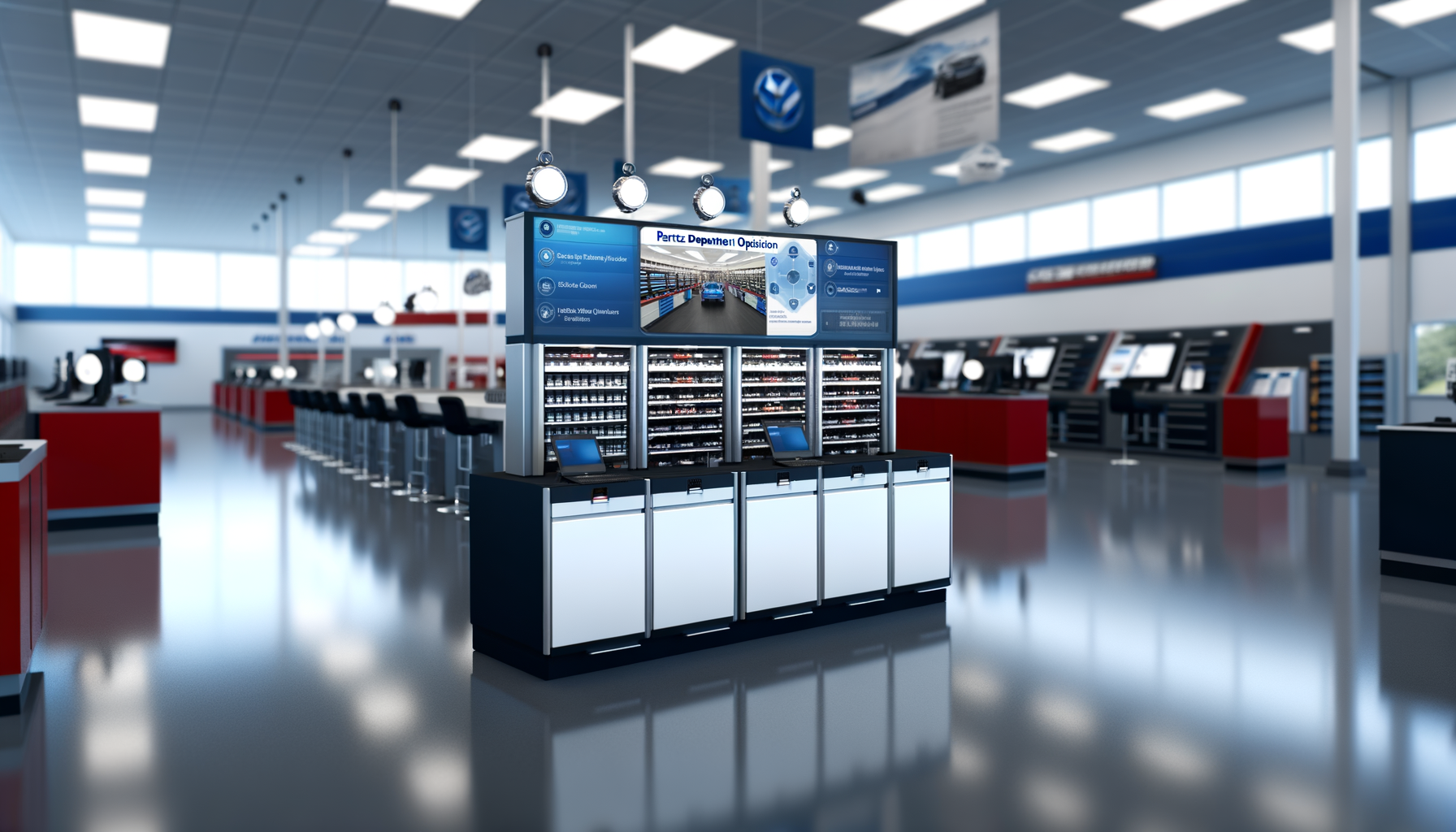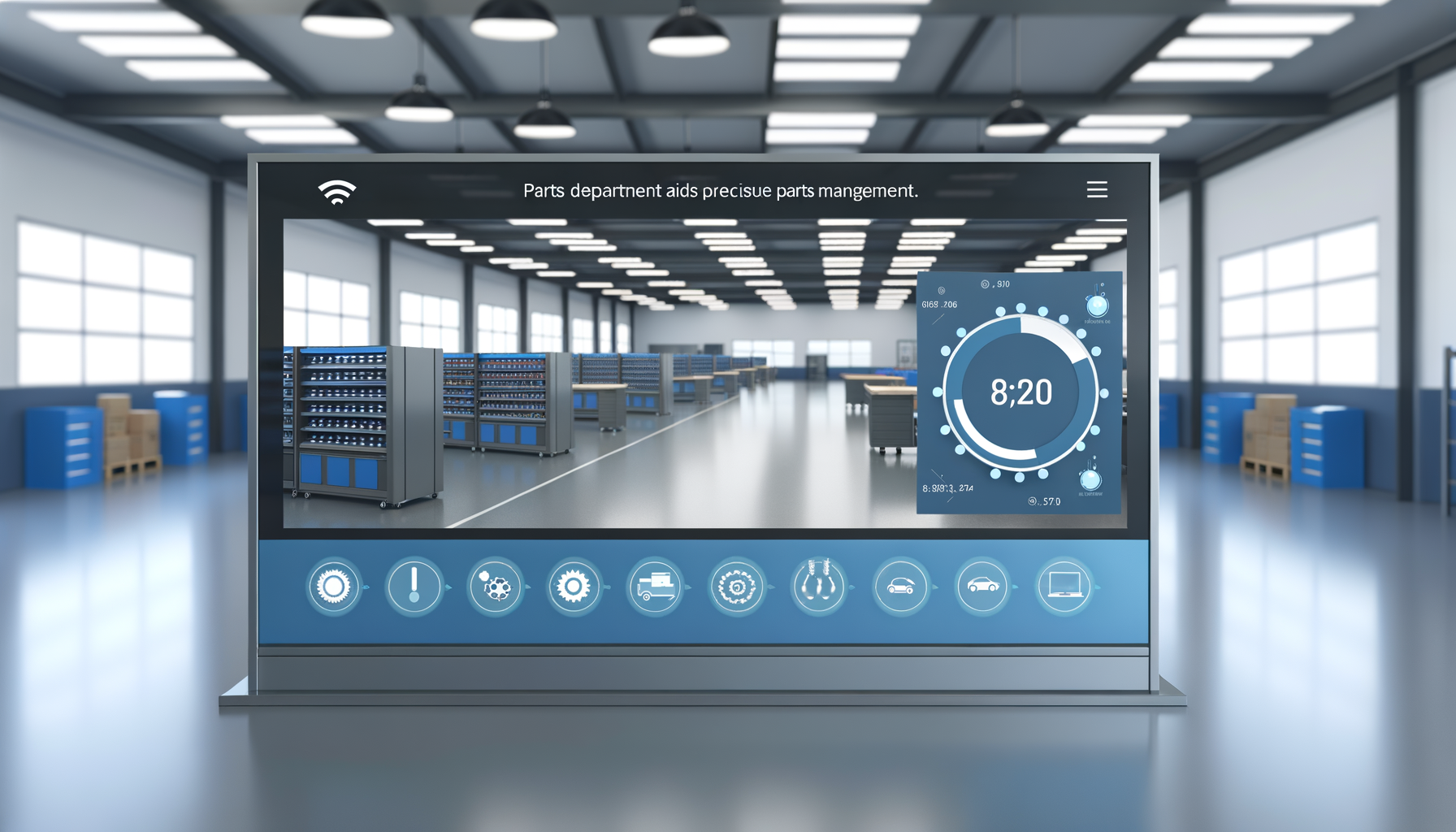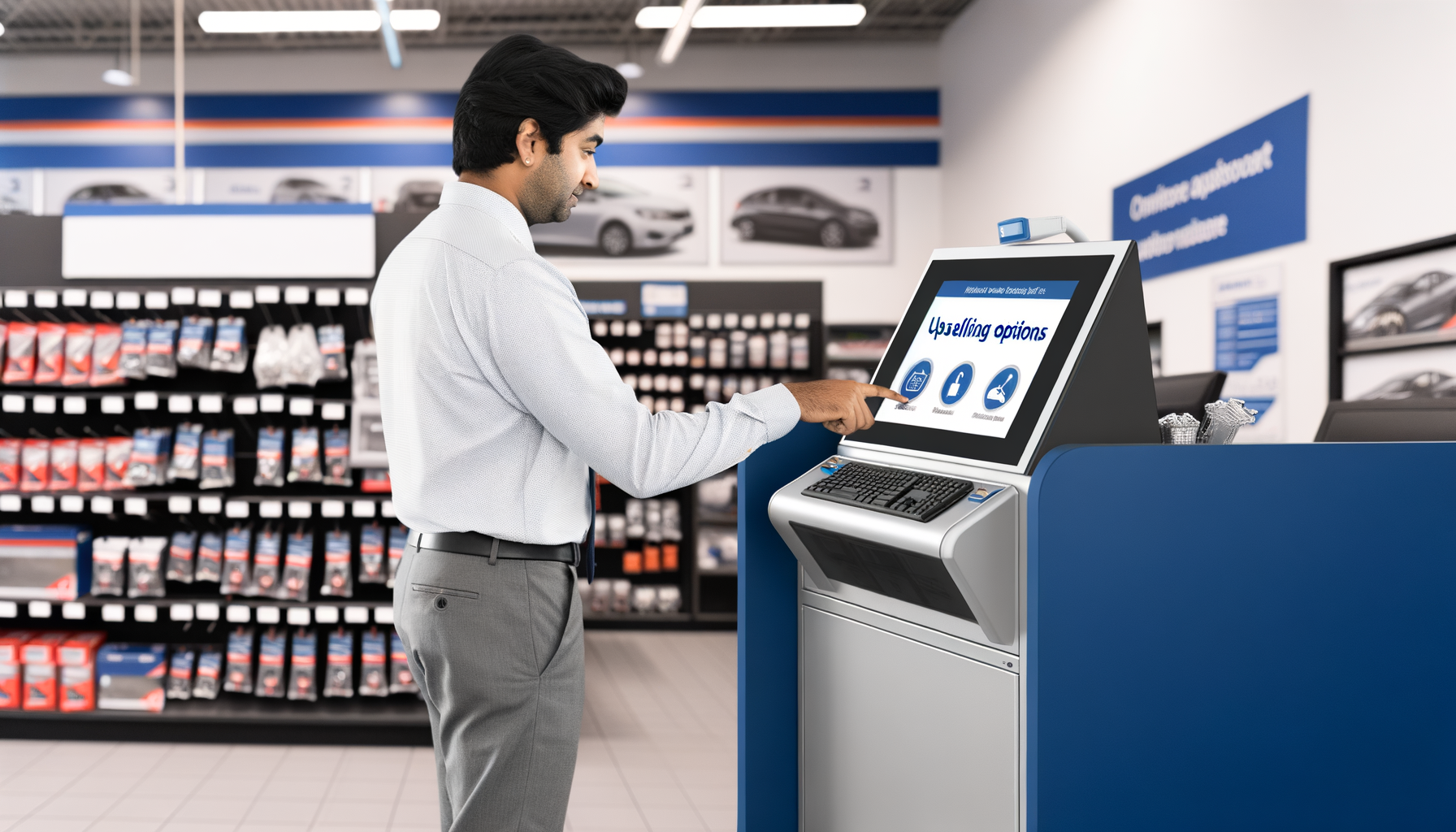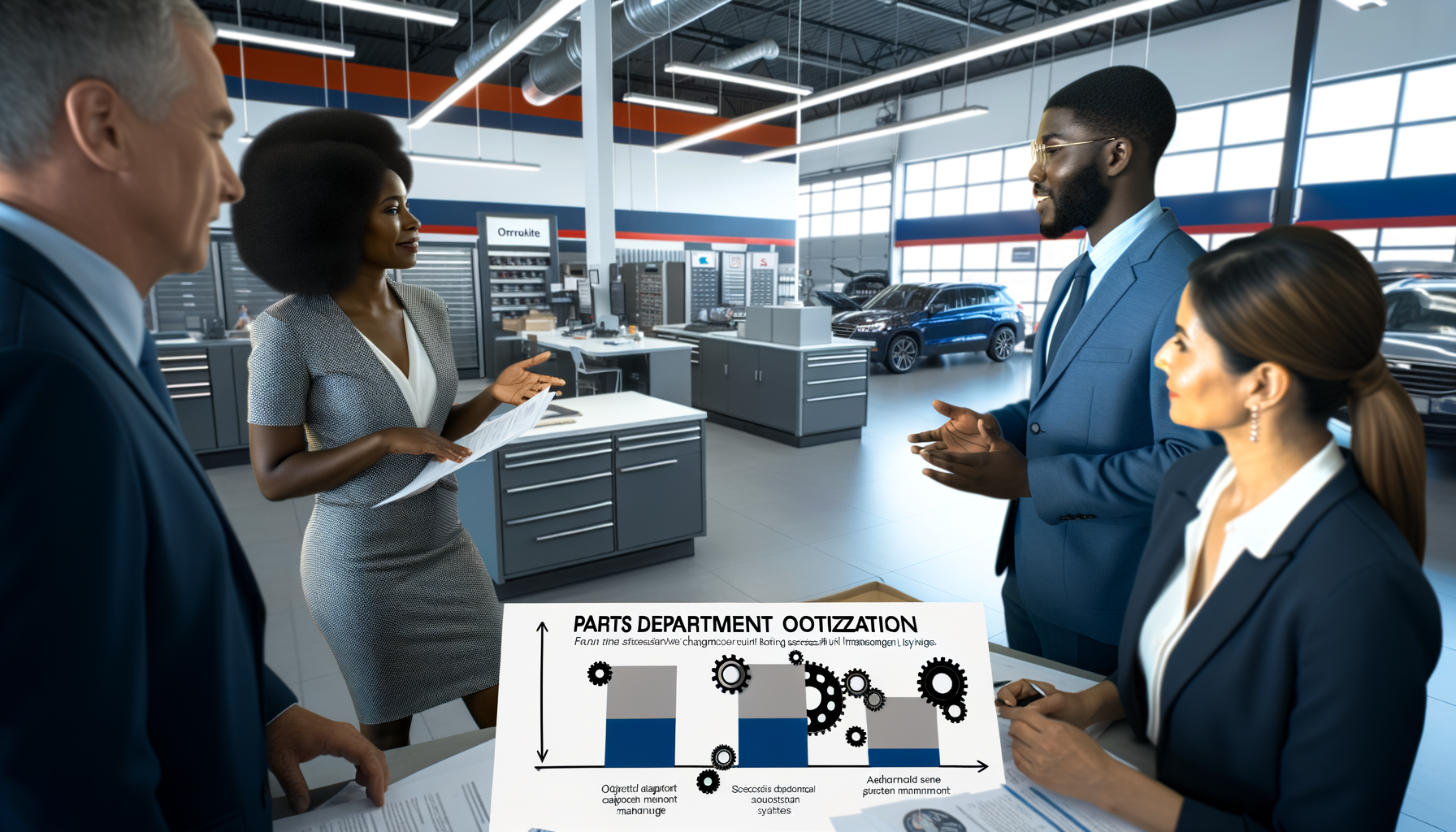Tune-Up Transformation: Redefining Parts Inventory for Peak Performance

Understanding the Core Challenges in Parts Departments

Navigating the complexities of a parts department requires acknowledging the multifaceted challenges that impact profitability and efficiency. From managing extensive inventories to integrating new technologies, the obstacles are significant.
Current trends indicate a 15% increase in EV-related parts, which requires rethinking traditional inventory strategies. Additionally, new OEM training requirements are reshaping how parts departments operate.
Addressing these challenges starts with a clear understanding of your department's unique pain points. Implementing a thorough analysis of current workflows and processes is crucial for pinpointing inefficiencies.
Mastering Inventory Management for Maximum Efficiency

Effective inventory management is the backbone of a profitable parts department. In 2025, leveraging advanced inventory management software is non-negotiable.
Integrate real-time analytics to track parts flow and predict demand more accurately. This approach reduces excess stock and minimizes obsolescence.
Implement a structured cycle counting process to maintain inventory accuracy. Regular audits and adjustments ensure that inventory levels align with actual demand.
Implementing Advanced Analytics and Automation

Analytics and automation can revolutionize your parts department by providing deep insights into operations and customer preferences.
Deploy automation tools to streamline reordering processes and reduce manual errors. This ensures that popular parts are always in stock without overburdening inventory.
Analyze customer purchase history to tailor upselling strategies, enhancing both customer satisfaction and sales.
Strategies for Effective Parts Upselling

Upselling is a crucial strategy for boosting parts department sales. It requires a seamless integration of sales techniques and customer relations.
Train staff to effectively communicate the benefits of premium parts options and maintenance packages to customers, focusing on value rather than cost.
Implement digital kiosks or apps that suggest related products during the purchasing process, increasing the chances of upselling.
Reducing Obsolescence and Maximizing ROI

Obsolescence is a costly issue that can significantly impact profitability. Strategies to minimize this include regular demand forecasting and dynamic pricing.
Adopt a dynamic pricing model to move slow-selling items faster, thereby reducing obsolescence and freeing up capital.
Regularly review and adjust pricing strategies based on market trends and seasonal demands to optimize sales.
Case Studies: Success Stories from Leading Dealerships

Real-world examples provide invaluable insights into successful strategies. Consider XYZ Dealership, which increased parts sales by 20% through strategic inventory management.
Another example is ABC Motors, which leveraged automation to reduce manual labor costs by 30%, reinvesting savings into staff training.
These case studies highlight the transformative power of embracing technology and innovative practices in parts departments.
Related Topics
Ready to take your service department to the next level?
Schedule your demo today and experience the power of Auto Pro Solutions.
Schedule Demo